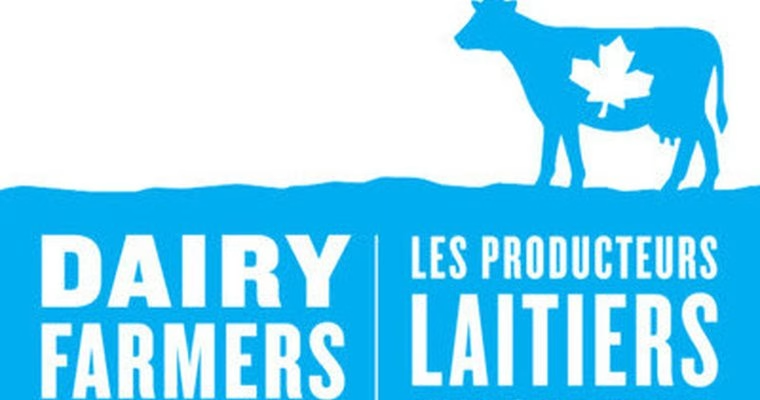Learn about the newest discoveries in dairy science! How are IRCs making cattle healthier, happier, and more sustainable? Check out DFC’s 2023 research highlights now.

The development of the dairy sector depends on creativity and conquering new difficulties. How can we guarantee that dairy farming’s bright future will be sustainable? The successes and opportunities of Industrial Research Chairs (IRCs) in dairy research are discussed along with future possibilities in this paper. Spending $2 million yearly in research, the Dairy Farmers of Canada (DFC) works with the Natural Sciences and Engineering Research Council (NSERC) and many partners. With an eye on essential areas such as dairy cow health, welfare, longevity, infectious illness, and biosecurity, this funding supports the National Dairy Research Strategy. Acknowledging these IRCs emphasizes their role in determining the direction of dairy production.
See full report here DFC 2023 research highlights report,
Fueling Innovation: DFC’s $2 Million Annual Investment Elevates Dairy Research and Industry Contributions.
Every year, the Dairy Farmers of Canada (DFC) commits $2 million to progress dairy production research, human health, and nutrition. This significant investment illustrates DFC’s dedication to creativity and improvement of the dairy sector’s social contributions. By focusing these funds on scientific research, DFC hopes to provide practical solutions benefiting consumers and industry stakeholders.
The National Dairy Research Strategy is the core of these initiatives. It’s a framework that identifies important topics of investigation. This approach prioritizes sustainability, human nutrition, and dairy cow health and welfare, among other things. The aim is to support sustainable dairy production, lower health hazards, and emphasize the nutritional value of dairy products.
To finance initiatives tackling significant problems and grabbing fresh possibilities, DFC works with top academic institutions, business partners, and government organizations. This deliberate method guarantees that research produces practical applications, promotes industrial development, and improves public welfare. Thus, the National Dairy Research Strategy dramatically enhances the resilience and competitiveness of Canada’s dairy industry.
Industrial Research Chairs: Catalysts for Progress through Collaborative Research
Industrial Research Chairs (IRCs) are vital in advancing the dairy sector by encouraging cooperation. Supported by academic institutions, industry partners, and government agencies such as the Natural Sciences and Engineering Research Council (NSERC) and the Dairy Farmers of Canada (DFC), IRCs address high-priority dairy sector challenges through focused research projects.
IRCs’ power is in organizing many research initiatives within a shared framework. Leading networks spanning scientists, veterinarians, industry leaders, and legislators by chairholders and subject-matter experts help. This convergence of many points of view directs research activities to address sector problems.
Dairy sector concerns, including dairy cow health, welfare, biosecurity, and sustainability, rank highest among IRCs. Through a diverse strategy, they create creative ideas for application in the sector, fostering resilience and ongoing development.
Moreover, knowledge translation and transfer (KTT) depends much on IRCs. They provide study results to dairy producers, consultants, and industry players through podcasts, webinars, and trade magazines. This guarantees that the most recent scientific developments are practical and readily available, promoting the dairy sector’s expansion and sustainability.
Transforming Dairy Health: The Five-Year NSERC IRC on Infectious Diseases in Dairy Cattle, Led by Dr. Herman Barkema at the University of Calgary (2019-2024)
Under Dr. Herman Barkema of the University of Calgary (2019–2024), the five-year NSERC IRC on Infectious Illnesses in Dairy Cattle aimed to change how infectious illnesses are handled in the dairy sector. This project sought to improve herd health, welfare, and production using innovative research and pragmatic solutions.
The IRC tackled significant problems with an eye toward:
- Knowing Johne’s disease’s epidemiology, diagnosis, and control strategies helps one.
- We are developing early identification, prevention, and treatment plans for mastitis.
- Investigating use trends and advocating sensible substitutes help to address antimicrobial resistance.
- Veterinarian-Farmer Communication: Increasing dialogue can help to guide decisions and control diseases.
- We are examining how outdoor access affects illness frequency and the general state of health.
The effort produced noteworthy results that shaped policies and best practices throughout the dairy industry. For instance, the IRC on Infectious Diseases in Dairy Cattle, led by Dr. Herman Barkema, significantly improved herd health, welfare, and production. The cooperative research strategy reinforced strong linkages between academics, on-farm applications, and industry stakeholders, promoting a resilient and health-conscious dairy sector.
Using DFC’s knowledge-translation tools, industry conferences, and scientific publications, results from this IRC have been extensively disseminated to guarantee significant distribution throughout the Canadian dairy scene.
25 Years of Advancement: Celebrating UBC Animal Welfare Program’s Groundbreaking Contributions
Approaching a significant turning point in animal care, the UBC Animal Care Program has advanced astonishingly during the last 25 years. Under the direction of Dr. Dan Weary and Dr. Marina von Keyserlingk, this project has been instrumental in raising dairy cow welfare and standards both here at home and abroad. Their studies have addressed problems like lameness, social housing, pasture access, and pain treatment, laying a scientific basis for optimum standards. By their committed work, Drs. Weary and von Keyserlingk have greatly improved animal welfare in the dairy sector, highlighting science and activism’s transforming potential.
Under Dr. Elsa Vasseur’s direction of the NSERC/Novalait/DFC/Valacta IRC on the sustainable life of dairy cattle (2016–22), three main topics surfaced: cow comfort and management, cow longevity, and environmental sustainability. Emphasizing cow comfort, Vasseur upgraded bedding, housing, and social interactions to raise cow welfare, health, and production.
Regarding cow lifetime, her studies focused on management and genetic elements to increase dairy cow productivity. Voseur sought to keep cows healthy for longer by tackling health problems and stresses.
Vasseur investigated environmentally friendly methods like waste management and resource-efficient feeding techniques to lessen the impact of dairy production. This harmonic approach underlined the junction of environmental issues and animal welfare.
Now co-chairing the WELL-E Research Chair (2023–28) with Abdoulaye Baniré Diallo, Vasseur is pioneering sophisticated informatics and artificial intelligence to further improve animal welfare and lifespan. This creative project marks a daring step toward a more ethical and environmentally friendly dairy sector.
Pioneering Biosecurity in Dairy: Leadership of Simon Dufour and Juan Carlos Arango Sabogal at Université de Montréal
Launched in 2020, the five-year RC in biosecurity of dairy production is led by Simon Dufour and Juan Carlos Arango Sabogal of the Université de Montréal’s veterinary medicine school. Focusing on biosecurity, diagnostics, and disease management to limit economic losses, safeguard animal welfare, and reduce public health and environmental consequences, this program offers dairy producers techniques to avoid and treat infectious illnesses.
Developing protocols and best practices for biosecurity measures helps this topic be pragmatic and reasonably priced. Good biosecurity strategies help protect herd health, increasing general farm output.
Advanced diagnostics are vital. By improving disease detection and identification and using new techniques and technology for consistent findings, farmers can react quickly and effectively to health hazards.
Researching and using creative illness monitoring and management strategies is essential. The aim is to establish a solid basis for disease prevention, quick reaction to outbreaks, and ongoing farm practice improvement.
Through its targeted topics and cooperative leadership, this research project seeks to provide the Canadian dairy sector with the necessary information and instruments to improve farm sustainability and animal welfare.
Bridging the Gap: Knowledge Translation and Transfer (KTT) Tools for Dairy Industry
DFC created Knowledge Translation and Transfer (KTT) technologies to close the distance between innovative research and helpful applications. These instruments guarantee quick acceptance of innovations and best practices by efficiently distributing research results to dairy farmers, on-farm advisors, and industry stakeholders. KTT technologies simplify challenging scientific data to help stakeholders improve operations and make evidence-based choices.
KTT tools exist in many readily available forms meant to meet diverse needs:
- Podcasts are audio recordings with insights from top professionals, perfect for on-the-job learning.
- Visually pleasing images are stressing essential lessons and valuable applications.
- Short, exciting films called animated videos help to make study topics enjoyable and remembered.
- Trade Publications: Research results and practical advice shared in sector magazines.
- Webinars are interactive online lectures, including research presentations, and are accompanied by Q&A sessions.
Dairy Farmers of Canada guarantees significant research findings are accessible and practical by using these various KTT methods, enabling stakeholders to apply changes that propel the sector ahead.
The Bottom Line
The Dairy Farmers of Canada (DFC) spends $2 million yearly on research; Industrial Research Chairs (IRCs) have transforming power. Given substantial financing and partnerships, these projects are essential for promoting dairy health, welfare, and sustainability. Advances in infectious disease management, animal welfare, sustainability, and biosecurity show their relevance. Strong and sustainable dairy depends on a dedication to academic quality, pragmatic innovation, and stakeholder cooperation via IRCs. We must keep supporting these essential research initiatives even as we honor these successes. With constant investment and effort, we can ensure a bright future for the dairy sector, benefiting society, consumers, and farmers.
Key Takeaways:
- DFC invests $2 million annually in research focused on human health, nutrition, and dairy production.
- IRCs coordinate multiple research projects under one initiative to address industry-wide priorities.
- Significant impact areas include dairy cattle health, welfare, longevity, infectious disease, and biosecurity.
- Collaborative funding from DFC, NSERC, and sector partners ensures targeted investment in crucial research areas.
- NSERC IRC on infectious diseases in dairy cattle, led by Dr. Herman Barkema, focuses on herd health and productivity.
- University of British Columbia’s Animal Welfare Program has significantly improved animal care and welfare internationally.
- The IRC on sustainable life of dairy cattle, chaired by Dr. Elsa Vasseur, emphasizes cow comfort, longevity, and environmental sustainability.
- Since 2020, the RC in biosecurity of dairy production works towards preventing and controlling infectious diseases on farms.
Summary:
The dairy sector’s growth relies on creativity and overcoming challenges. Industrial Research Chairs (IRCs) are instrumental in advancing the sector by encouraging cooperation and addressing high-priority issues through focused research projects. The Dairy Farmers of Canada (DFC) spends $2 million annually on research, working with the Natural Sciences and Engineering Research Council (NSERC) and partners to focus on dairy cow health, welfare, longevity, infectious illness, and biosecurity. The National Dairy Research Strategy prioritizes sustainability, human nutrition, and dairy cow health and welfare. IRCs provide study results to dairy producers, consultants, and industry players through podcasts, webinars, and trade magazines, ensuring the latest scientific developments are practical and readily available. Knowledge Translation and Transfer (KTT) tools facilitate the quick acceptance of innovations and best practices by efficiently distributing research results to dairy farmers, on-farm advisors, and industry stakeholders.












